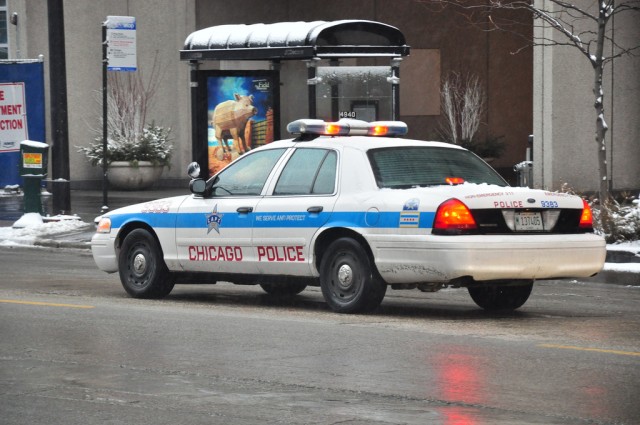If you are a tea-tottling gardener in America these days, you can be mischaracterized as a criminal, even if you just happen to be with the Central Intelligence Agency.
As noted at HealthNutNews, back in 2012 a husband and wife, both of whom worked for the CIA as analysts, had their home and their privacy vandalized, essentially, by a local Kansas SWAT team. For two hours militarized cops kept the family at bay while searching their premises, even though after a few minutes the team knew it wasn’t going to find what it came for – marijuana.
You see, some months before, Robert and Addie Harte took their son to a local gardening store to help him with a school project – growing hydroponic tomatoes. The day they were there to buy their supplies, a state trooper just happened to be in the parking lot collecting license plate numbers of all shoppers at the gardening store. For some reason the state had decided to collect plate numbers and then distribute them to local sheriff’s departments for further investigation.
The Harte’s did nothing more than drive to the store, park and buy some gardening equipment – but that was all it took to make them the targets of a criminal probe.
Some eighteen months later, the family was investigated as part of “Operation Constant Gardener” by the Johnson County Sheriff’s Department; deputies were even tasked with going through the Harte’s trash. Repeatedly finding what they later described as wet plant material – which officers assumed was marijuana – field tests were done and, somehow, they indicated the presence of THC, the active drug in pot, and the department used that test and the trip to the gardening store as “evidence,” convincing a judge to then issue a search warrant, which led to the raid.
As further reported by HealthNutNews:
They would find nothing and lab tests would reveal that the plant material was loose-leaf tea (which Addie Harte drank on a regular basis) but the damage was done and the family harassed needlessly. So, the important question then becomes, why did the field tests come up positive for marijuana? Well, it seems it happens a lot. Like whenever the police [want] it to.
Radley Balko, author of “Rise of the Warrior Cop,” wrote in a December 2015 story for The Washington Post that such tests are often wrong. In fact, he noted that the lab test on the plant material not only wasn’t pot, but that it did “not look anything like marijuana leaves or stems.”
And, in 2009, Balko noted, the Marijuana Policy Project conducted studies on typical testing kits used by police to test for drugs; the organization found that “a surprisingly large number of common substances generated false positive results for the presence of drugs.”
Balko writes: “It’s almost as if these tests come up positive whenever the police need them to.”
Continuing, he noted:
A partial list of substances that the tests have mistaken for illegal drugs would include sage, chocolate chip cookies, motor oil, spearmint, soap, tortilla dough, deodorant, billiard’s chalk, patchouli, flour, eucalyptus, breath mints, Jolly Ranchers and vitamins.
“While testing the specificity of the KN Reagent test kits with 42 non-marijuana substances, I observed that 70 percent of these tests rendered a false positive,” said Dr. Omar Bagasra, director of the Center for Biotechnology, who conducted the experiments for the policy center.
“Law enforcement officials, forensic drug analysts, and prosecutors knowingly employ the flawed Duquenois-Levine and KN Reagent tests as well as mere conclusory police reports to wrongfully prosecute and convict millions of individuals for anti-marijuana law violations,” wrote forensics expert John Kelly, in collaboration with former FBI chief scientist and narcotics officer Dr. Frederick Whitehurst in a report [PDF] they jointly produced, “False Positives Equal False Justice.”
As for the Harte’s, it took months and $25,000 to find out why they had been raided. Once they did, they filed a lawsuit – though recently a federal judge dismissed their lawsuit claims, saying that “sending a SWAT team into a home first thing in the morning based on no more than a positive field test and spotting a suspect at a gardening store was not a violation of the Fourth Amendment,” Balko wrote.
Sources:


